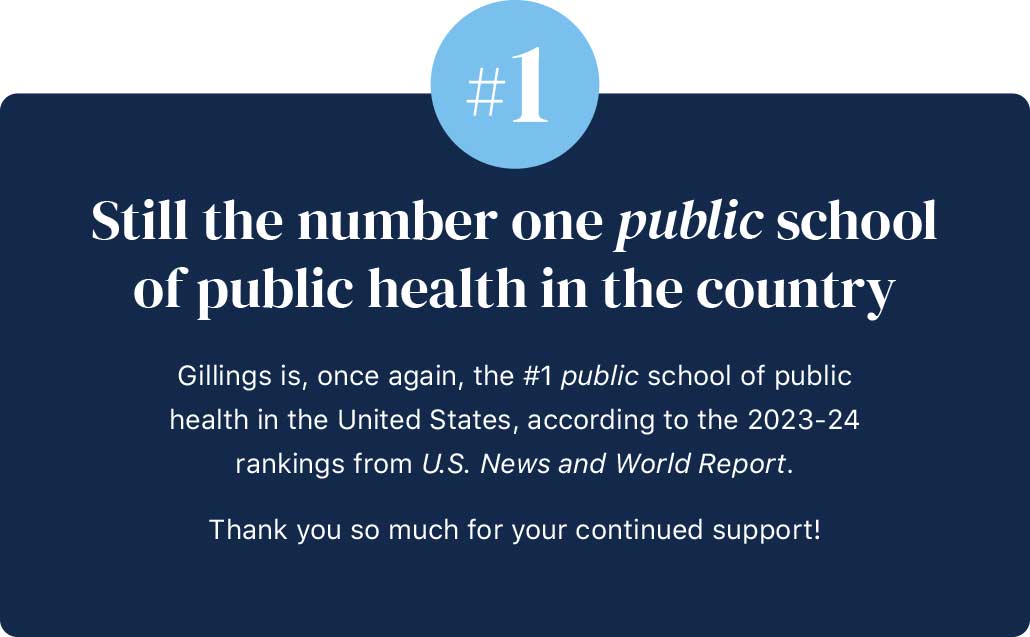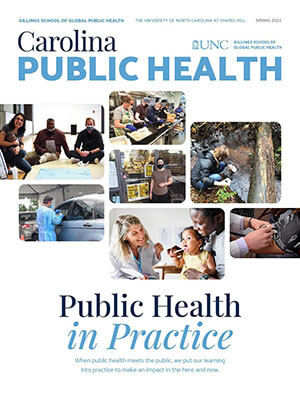Public Health in Practice: Analyzing Genetic Variants that May Influence Disease
Gillings is part of a national consortium to identify how genetic variants can influence disease.
Gillings experts and students are engaging in practice that makes a difference locally, nationally and globally.
There are thousands of genetic variants, or changes in the DNA that make up a gene, and that may affect how diseases develop — but these variants’ actual identities are unknown. With UNC’s selection as a key leader in a national genomic research project, Michael Love, PhD, assistant professor of biostatistics and genetics, aims to answer those unknowns. He will direct statistical design and data analysis for an experiment that could identify these variants for the first time and lead to a better understanding of how multiple diseases develop by figuring out which proteins and types of cells are involved.
A $185 million five-year project funded by the National Institutes of Health, the Impact of Genomic Variation on Function (IGVF) Consortium includes 30 research sites across the country studying how DNA variants affect human health. Along with Hyejung Won, PhD, assistant professor of genetics, and Karen Mohlke, PhD, professor of genetics, Love is a principal co-investigator for UNC’s $9.25 million study, whose results may help identify new targets for drugs to treat common illnesses more effectively.
“The aim is to increase our knowledge and the predictive power of our models,” Love says of this intensely collaborative effort, which relies on the expertise of researchers across various disciplines. “It would not be possible to carry out this experiment without a large group of experts at UNC-Chapel Hill contributing their pieces. This experience in team science is incredibly valuable, with teams of geneticists, biologists, computer scientists, statisticians and others coming together to design experiments and interpret results.”
"The aim is to increase our knowledge and the predictive power of our models."
— Michael Love, PhD
UNC’s team will select roughly 250,000 variants across the project’s five years, focusing on a different category of trait or disease each year and including variants from populations of diverse ancestries. Researchers will measure the variants’ functional effects and compare them across sex, tissue type (brain, heart, lungs, etc.) and other factors. These measurements will provide roughly 10 million data points that will be used to generate a comprehensive catalog to help researchers better understand how genomic variation impacts human health and disease, which in turn could accelerate biomedical research into more effective treatments.
“When you’re a biostatistician working with large amounts of data, practice doesn’t always mean getting out into a community,” says Lisa LaVange, PhD, biostatistics chair and professor. “But if you are analyzing data or running models to develop therapies that can improve diagnosis or treatment of disease and lead to better health outcomes, you can’t get more practical than that.”





